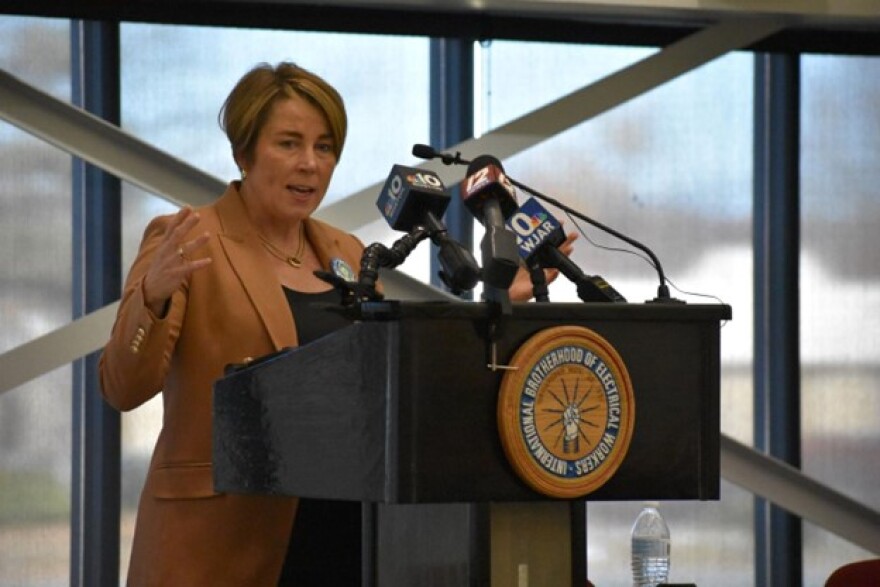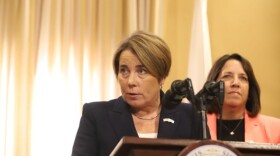Among the many groups concerned about what happens once President-elect Donald Trump takes office again are environmentalists and clean energy advocates, as well as their political backers. BuT last week Gov. Maura Healey doubled down on the state's commitment to offshore wind.
Chris Lisinksi of the State House News Service summarized what message Healey delivered to the union hall audience in Taunton.
Chris Lisinksi, SHNS: Healey was optimistic, maybe even bombastic, in the face of growing skepticism about the future of the offshore wind industry, both because of headwinds that it's facing and because of very apparent skepticism from the incoming Trump administration.
She said, "We'll show them. We'll prove the critics wrong. We'll get this done no matter what people say." And she seems to think that the combination of unionized labor interests here in Massachusetts and the growing clean energy industry gave what she calls a [secret] sauce to the Bay State.
Carrie Healy, NEPM: We should note here that not everyone is a fan of offshore wind. What are we hearing from Massachusetts-based wind opponents?
We're hearing the same message we've heard for years, which is warnings that this transition to clean energy sources, like offshore wind, is going to drive up costs for ratepayers who are stuck footing the bill throughout the pretty significant transition process.
“Expect cost hikes, blackouts from NE's green energy policies - study” via @IAMMGraham. https://t.co/ymsvvvFQsd #mapoli
— Fiscal Alliance Foundation (@FiscalAlliance) November 22, 2024
A commission created to tackle the housing issues in the state's emergency shelter system has submitted its report ahead of schedule. The surge last year was largely attributed to an influx of migrant families. It was hoped the commission would make recommendations about concrete steps the state would take to make the system more sustainable. What was in the report?
The report called for, in pretty broad terms, about the need to rein in costs and make the emergency shelter system more financially sustainable. One big focus of it was calling for the state to reduce its reliance on hotels and motels as sources of shelter. That's something that is among the responses the Healey administration is already trying to put into effect in response to this report.
Does the state have the money to fund the recommendations in the report?
Not appropriated already. Of course, lawmakers can always look under every couch cushion and in every savings account for the funding if they want to do that. But it seems that the Healey administration is going to be pursuing yet another spending injection for the emergency shelter system this fall, with projections that the system is going to run out of money, I believe, by January.
We'll be talking about this in the near future, I'm sure. Also relevant. And finally, Chris, last week, the Supreme Judicial Court issued a decision in a shelter-related case. What was decided and what's the impact?
The justices ruled the system cannot require families seeking shelter to get third-party verification of information, like proof that they are families, or that one member of this family seeking shelter is, in fact, a Massachusetts resident. People need to be provided shelter immediately before that third-party verification takes place.







